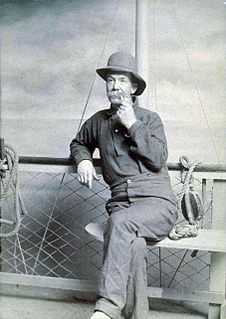A Quote by Rachel Naomi Remen
Every great loss demands that we choose life again. We need to grieve in order to do this. The pain we have not grieved over will always stand between us and life. When we don't grieve, a part of us becomes caught in the past like Lot's wife who, because she looked back, was turned into a pillar of salt.
Related Quotes
There is an art to grieving. To grieve well the loss of anyone or anything--a parent, a love, a child, an era, a home, a job--is a creative act. It takes attention and patience and courage. But many of us do not know how to grieve. We were never taught, and we don't see examples of full-bodied grieving around us. Our culture favors the fast-food model of mourning--get over it quick and get back to work; affix the bandage of "closure" and move on.
Playing the part of a charitable soul was only for those who were afraid of taking a stand in life. It is always far easier to have faith in your own goodness than to confront others and fight for your rights. It is always easier to hear an insult and not retaliate than have the courage to fight back against someone stronger than yourself; we can always say we're not hurt by the stones others throw at us, and it's only at night - when we're alone and our wife or our husband or our school friend is asleep - that we can silently grieve over our own cowardice.
Do not grieve. Misfortune will happen to the wisest and best of men. Death will come, always out of season. It is the command of the Great Spirit, and all nations and people must obey. What is past and cannot be prevented should not be grieved for... Misfortunes do not flourish particularly in our lives - they grow everywhere.
As Luke knelt down beside his corpse, Clary couldn’t help but remember what he had said about having loved Valentine once, about having been his closest friend. Luke, she thought with a pang. Surely he couldn’t be sad — or even grieved? But then again, perhaps everyone should have someone to grieve for them, and there was no one else to grieve for Valentine.
Do not grieve over the temptations you suffer. When the Lord intends to bestow a particular virtue on us, He often permits us first to be tempted by the opposite vice. Therefore, look upon every temptation as an invitation to grow in a particular virtue and a promise by God that you will be successful, if only you stand fast.
The reality is that you will grieve forever. You will not "get over" the loss of a loved one; you will learn to live with it. You will heal and you will rebuild yourself around the loss you have suffered. You will be whole again but you will never be the same. Nor should you be the same nor would you want to.
None of us makes it through this life without problems and challenges — and sometimes tragedies and misfortunes. After all, in large part we are here to learn and grow from such events in our lives. We know that there are times when we will suffer, when we will grieve, and when we will be saddened. However, we are told, “Adam fell that men might be; and men are, that they might have joy.” How might we have joy in our lives, despite all that we may face? Again from the scriptures: “Wherefore, be of good cheer, and do not fear, for I the Lord am with you, and will stand by you."


































